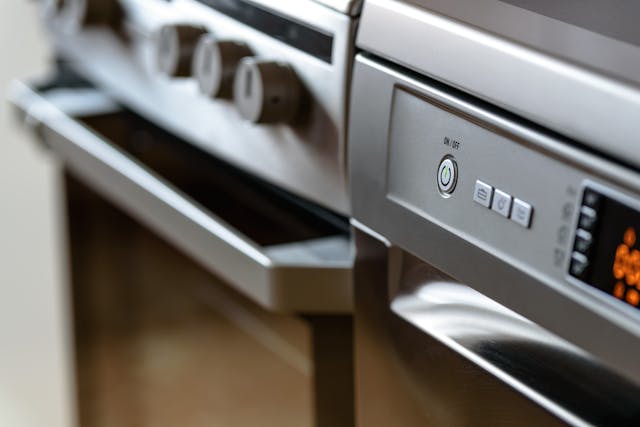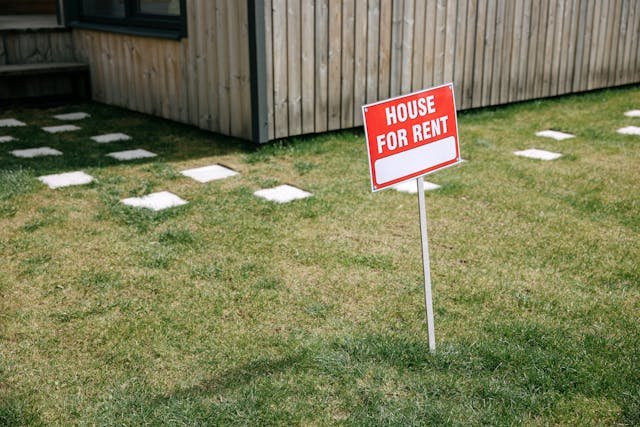
How you price your Orlando rental home will usually have an impact on your bottom line. If you set a high price, you may have a difficult time renting out the property. And with an extended period of vacancy, it’ll mean more operational costs for you.
However, with lower rents, you may have an easier time renting out the property but you may not be able to optimize your ROI.
So, how should you price your Orlando home to rent? The goal is to have the perfect balance, where you’re neither overcharging or undercharging tenants. This will ensure your property remains competitive in the local rental market, and you still get to optimize your ROI.
In this guide, State Property Management will share 5 tips to help you price your Orlando home to rent.
5 Tips to Price Your Orlando Home to Rent
1. Use Your Property’s Value
Determining an appropriate rental price starts with assessing your property's worth. A simple method is to calculate 1.1% of the property's value. For a $100,000 home, this would yield a monthly rent of $1,100.
Keep in mind that this is just a starting point. Several factors can influence the actual rental value. Consider the property's location, nearby amenities, layout, and unique design features. These elements can either increase or decrease the potential rent amount.

It's crucial to research the local rental market. In competitive areas with numerous available properties, you might need to adjust your price to stay competitive. The goal is to find the sweet spot between maximizing your income and attracting quality tenants.
2. Compared With Other Similar Units
Another way to determine how much to price your Orlando home is to look at the competition. This method will, however, work if you look at comparable units. These are units that share similar characteristics, such as size, location, lease terms, and amenities.
When looking for comparable units, you go about the process in any of the following ways. One, you could go to online rental marketplaces. For example, you could use websites like Zillow, Realtor.com, and Apartments.com to search for rentals in your area. You could filter the search criteria by the square footage, number of bedrooms and bathrooms, and amenities.
Another way to look for similar units in your area could be by contacting local property management companies. These will often have a good understanding of how the local rental market operates and advise you accordingly.
You could also drive around the neighborhood yourself. Look for “For Rent” signs for units similar to yours that are on the market. You could also talk to neighbors to learn a thing or two. For instance, how much the unit is renting for and how long it has been vacant.

3. Calculate the Rent Amount Based on the Unit’s Square Footage
Calculating the rent based on square footage can be a useful approach when comparing properties of different sizes. If done well, this method can allow you to establish a fair price for your rental unit.
Start by finding a similar property in your area with known rental information. Divide its monthly rent by its square footage to get the price per square foot. For instance, for a 1,100 square feet property, the price per square foot would be: $1,250 / 1,100 sq. ft. = $1.14 per sq. ft.
Next, apply this rate to your property's square footage. If your Orlando rental property is 1,500 square feet, that would equate to a potential rent of $1,700. (1,500 sq. ft. x $1.14 = $1,710).
4. Know What Factors Can Impact the Rental Price
The aforementioned calculations are only meant to provide a ballpark figure. For a more specific figure, you’ll want to look at other factors. They include the following:
Location
This is a key factor that will almost always have an impact on a unit’s rental price. The right location will make a rental property desirable, therefore increasing your chances of asking for relatively higher rent.
Amenities
Tenants value amenities and are usually willing to pay more rent for the convenience they provide. Some of the most desirable amenities for tenants include in-unit laundry, dishwasher, air conditioning, high-speed internet, and outdoor space.

The Property’s Features
Certain features your property may have can also have an impact on its desirability. One such feature is the size of the property. The higher the square footage of the home, the more rent it can fetch.
Another feature is the type of appliances you provide. Common appliances include a refrigerator, stove/oven, dishwasher, washer and dryer, and a microwave.
The State of the Economy
If the economy is doing great, many people would be able to buy homes. This would then reduce rental demand and, therefore, reduce prices. On the contrary, in a downturn market, many people would resort to renting homes rather than buying, pushing the rental demand.
5. Work With a Professional
Managing a rental property can be stressful and time-consuming. More so, if you’re an out-of-state investor, just getting started, or have multiple units to look after. In these cases, hiring an expert would be ideal.
A property manager can provide you with all of the help you need to succeed. From finding quality tenants, collecting rent, handling legal issues, and more!
Conclusion
There you have it – everything you need to know when it comes to pricing your Orlando rental property. Charging the right price should help you attract and retain high-quality tenants for an optimum ROI.
State Property Management can help handle all your property management needs. We have been helping landlords in Central Florida optimize their ROI since 2011. Get in touch to learn more!